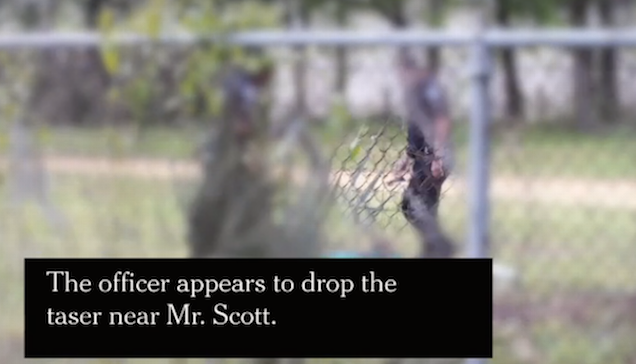![The Maker Of The Trollface Meme Is Counting His Money]()
You’re probably familiar with this image, the infamous “trollface” that’s circulated the Internet for years. Someone drew the original trollface, and it’s 24-year-old Carlos Ramirez.
Back in 2008, Ramirez should have been working on a college paper, but as was the case on most nights, he found himself scrolling through the anonymous image board 4chan, instead. He decided to post a comic drawn up in MS Paint, something he’d done a dozen times before.
“I didn’t really have any intention to share it,” he told me. “I just posted it on their video game board and I went to sleep. I woke up the next morning and saw it re-posted in a number of other threads.”
What he posted would, in short order, become Internet myth and legend:
![The Maker Of The Trollface Meme Is Counting His Money]()
The next day, though, Ramirez was merely pleased to see others sharing his one-off doodle. In the anonymous world of 4chan, having other people recognize your contribution felt good. Coincidentally, he’d planned a lengthy trip away from the Internet after posting the trollface. When he returned, 4chan had become obsessed with his creation—it was everywhere now.
But he figured it would stay on 4chan, and this was his 15 minutes of digital fame. That didn’t happen, obviously. Trollface became part of the Internet’s public face for years, one of the few jokes that transcended its origins and became part of the mainstream consciousness.
Seven years later, he’s still not sure why this particular image took off.
“I have no idea,” he laughed, “It’s simple. It’s really recognizable at varying sizes. I don’t know. It’s got this striking design. It wasn’t intentional. I’m not a graphics designer. I do some art, but that was not a good drawing. Definitely not my best work.”
Though trollface has become its own thing, a way of winking at the Internet’s mischief, the comic itself was meant to criticize poor forms of trolling. On 4chan and elsewhere, Ramirez would notice users being called out for making a poor argument or using incorrect information, but claim they were “trolling” the whole time, merely to save face.
“That’s what that whole little trollface comic was about—trolling as an excuse for being an idiot,” he said.
When trollface took off, Ramirez was 18-years-old, living with his parents, and unsure how to tell the people in his life he’d managed to create a bonafide Internet sensation.
How do you explain why a joke you made is influencing Deadpool comics?
![The Maker Of The Trollface Meme Is Counting His Money]()
“It took a while,” he said, “to get out of that phase of ‘oh, it’s so uncool telling your parents about Internet stuff.’ Just sharing your life in general.”
For a while, the only family member who know about the trollface was his younger sister.
“She kept a lid on it,” he said.
Then, she slipped up—his parents found out about trollface. To Ramirez’s surprise, his mother was incredibly proud of her son’s creation, and immediately wanted to celebrate it.
“I regret telling them because my mom has actually spray painted a trollface on the side of the house somewhere,” he said. “She’s very much a mom. ‘I’m so proud of my kid, he made a little Internet thing!’ So, every morning, I’d wake up, and you could see it perfectly visible.”
His father had no problem with the Internet meme, but he didn’t approve of the spray painting.
“He was kind of upset,” he said. “It’s still there. It will be there for years, for sure.”
It was all for the best, however, since his mother’s encouragement is what lead him to staking his personal claim over trollface and registering with the U.S. Copyright Office in 2010.
Don’t believe me? A quick search of the government’s database pulls up the following entry:
![The Maker Of The Trollface Meme Is Counting His Money]()
Registering trollface has been reliably profitable for Ramirez. Since registering the copyright in 2010, he estimates he’s made a little over $100,000 in licensing fees, settlements, and other payouts associated with trollface. At the meme’s height, when it was plastered on t-shirts at Hot Topic, Ramirez would pull in between $10,000 and $15,000 every few months. One document Ramirez showed me totaled out to $10,049.
These days, the checks aren’t as large. Ramirez collects a few thousand dollars now here and there, and he’s managed to keep the trollface financially viable because he continues to enforce his ownership of the copyright.
Most recently, he had the game Meme Run, an endless runner filled with various Internet jokes, pulled down from the eShop on Wii U.
Meme Run was a free download for PC and Mac before it showed up on Nintendo’s console. On the eShop, though, the game’s developer Ninja Pig Studios, was charging $4.99.
Ramirez became aware of Meme Run through a fan who gave him a friendly heads up.
“People message me,” he said, “‘Hey, look, your trollface was used here! You oughta sue these guys” I just say ‘Okay, I’ll look at it.’ And I look at it. If it’s a really minor thing, I can’t be bothered with it. It’ll take too much time, and let people have their fun. If they’re not making any significant money on it, it’s like, eh, not a big deal. If you’re publishing a game on a major platform and it’s using my image, it’s kind of hard to ignore.”
In the case of Meme Run, its meme-laden aesthetic is critical to the appeal.
“It’s really troublesome when you’re making a game comprised entirely of memes,” he said. “It’s a big problem of copyright infringement, all across the board, and I guess I was the only one with enough time to go out of my way and shake it down.”
As a result of Ramirez’s inquiries, Meme Run was pulled off the eShop last month.
Jordan Schuetz is the founder of Ninja Pig Studios, and while he was quick to respond to my emails about this dispute with Ramirez over trollface, he didn’t have many answers for me.
“When developing Meme Run, some art assets were taken from content hosted on royalty free image websites like Open Game Art,” said Schuetz. “The others I created myself in Photoshop. [...] It is uncertain if the game will ever return despite petitions that fans are currently circulating requesting the game be reinstated.”
Open Game Art is a database of royalty free art, music, and other material developers can use for their projects. I was unable to find Ramirez’s trollface when I searched through it.
![The Maker Of The Trollface Meme Is Counting His Money]()
When asked about his communication with Nintendo over this, Schuetz had little to say.
“The appropriate protocol to remove the game was followed,” he said.
When Ramirez talked to Schuetz about the game, he reportedly said the game hadn’t made him any money. But based on his own research, Ramirez doesn’t believe him. Around Christmas, Ramirez noted the game was topping the charts in the eShop, and the system’s Waru Waru Plaza, which changes dynamically based on what people are playing, reflected a spike of interest in Meme Run. This suggested to Ramirez the game was selling.
“Carlos’ figures are completely abstract and erroneous,” said Schuetz. “I’m not able to share exact or even ballpark figures to anyone due to the non-disclosure agreement that every developer signs with Nintendo. I am obligated to comply with the rules of engagement and confidentiality section of the contract that I signed in order to develop games for the Wii U platform.”
In researching Meme Run, Ramirez said he spoke with people close to Schuetz, who claimed Schuetz had been going around and telling people the game would help pay for college.
Schuetz didn’t explicitly deny this claim.
“I’ve been developing games since I was 16-years-old,” he said. “The revenue I’ve earned over the years from all my games goes to my university to fund my education.”
Since Schuetz can’t reveal his sales data without Nintendo raising an eyebrow, Ramirez instructed his lawyer to dig into into the issue. Ramirez wants Nintendo to hand over email correspondence with Ninja Pig Studios to answer some pretty key questions. Was Nintendo aware of a possible copyright violation? And how much has the game sold since release?
I contacted Nintendo about Meme Run and this dispute, but the company hasn’t responded.
To Ramirez, it’s a clear case of someone not doing their research or assuming they could get away with using trollface and other memes because the owners don’t often come forward. Ramirez has licensed trollface to lots of projects in the past, sometimes charging nothing. ACE Team put the trollface into Zeno Clash, and Adam Sandler wanted it for a poster in a movie. In both cases, they paid Ramirez a fee, and the creators were able to move forward.
![The Maker Of The Trollface Meme Is Counting His Money]()
This isn’t the first time Ramirez has gone to bat for trollface, and it probably won’t be the last. Just recently, he was about to file a complaint to the courts about a major media company (“You’ve heard their name a bunch of times”) before the organization in question finally caved.
“The thing I’ve learned is that people don’t like to go to court,” he said. “Court sucks. It takes years for things to settle. it’s a risk for both sides and just a huge waste of time. Ultimately, everybody wants to settle.”
He’s not sure how it’s going to play out with Meme Run yet, since individuals are trickier. Though Meme Run is no longer available on the eShop, Ramirez feels he’s owed a cut from the profits. Being a meme-centric game, he thinks Meme Run made money on the back of trollface.
“He’s probably the least mature person I’ve ever dealt with, if I will be frank,” he said. “That’s a difficulty. I don’t think he knows what the consequences of ignoring me are. That’s just annoying. It’s going to slow down the whole process. He’s going to be like ‘Oh, you want to sue me? Go ahead!’ And then we’re going to have to spend weeks drafting this thing, writing to the courts, and then he’ll be like ‘Oh, fuck. He’s serious. Shit! I should probably listen.’”
Ramirez now says that if Ninja Pig Studios simply asked for permission, he would have given it to them. He thinks the game’s cute, if a little bizarre, and he wants to see trollface in as many places as possible, so long as people are respecting the fact that he owns it.
“It’s good for business,” he said. “It keeps the image alive. I don’t want to kill it. I wouldn’t want to kill something that popular.”
Moments like this spring up in Ramirez’s life, but trollface is just one aspect of his world these days. He’s working on his own game, Wizard Simulator, about generating new spells with your voice, and he was the voice director (and announcer) for the indie fighter Lethal League.
If he has his way, he’ll continue to move down the path of game development.
Troll face may or may not remain a permanent fixture of the Internet, it’s hard to tell. Memes have a life of their own, and despite owning a copyright, Ramirez doesn’t control that part.
“People will completely forget that I made it, and I think that’s cool,” he said. “That doesn’t bother me at all.”
Image Credit: Adam Sandler (Unknown, please let me know!) / Illustration Credit: Jim Cooke
You can reach the author of this post at patrick.klepek@kotaku.com or on Twitter at @patrickklepek.


































